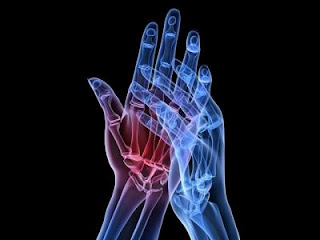Thursday, July 18, 2013
!أمل جديد: علماء يطورون قلباً صناعياً من لحم البقر
هناك الكثير من الأشخاص الذين يعانون من فشل في القلب ويحتاجون إلى
استبداله، وحينها يواجهون معاناة كبيرة في إيجاد متبرع قلبه مناسب للزراعة
ويضطرون للإنتظار وضياع الوقت الذي هم في أشد الحاجة له، ومنهم من يفارق
الحياة وهو على أمل الشفاء!
لذا يسعى العلماء إلى صناعة أعضاء كاملة واستبدالها بالمريضة، ولكن
يواجهون مشكلة تقبل الجسم للأعضاء الميكانيكية الغريبة والتي تستمر لفترة
قصيرة نسبياً ليواجه المريض نفس المشكلة مرة أخرى!
الأمل الجديد للمرضى أن الشركة الفرنسية ''Carmat" قامت بتطوير قلب صناعي
جديد مغلف بلحم البقر لمساعدة الجسم على تقبله واستمراره لفترة طويلة!
وتُجرى حالياً زراعة القلب الجديد لعدد من المرضى في إطار تجربته ومعرفة مدى نجاحه.
وتُجرى حالياً زراعة القلب الجديد لعدد من المرضى في إطار تجربته ومعرفة مدى نجاحه.
سيكون القلب الجديد متوفراً في الأسواق بحلول العام 2014 ، ومن المتوقع أن يبلغ سعره 200 ألف دولار!
Cracking your knuckles does not actually hurt your bones or cause arthritis. The sound you hear is just gas bubbles bursting.
Unfortunately, there can be too much of a good thing. Cracking your knuckles will never lead to arthritis (despite what your mom keeps telling you), but scientists have discovered that it can cause tissue damage in the affected joints. Knuckle-cracking pulls your finger bones apart which stretches your ligaments. Too much stretching of your ligaments will cause damage to your fingers akin to the arm injuries sustained by a baseball pitcher who throws too many pitches. In addition to making your hand really sore, this ligament damage can also result in reduced grip strength.
How does this work? Your joints, the places in your body where you can bend, are where your bones intersect and are held together by ligaments. These joints are surrounded by a liquid called synovial fluid. When you stretch your ligaments by pulling the bones apart to crack your knuckles a gas in the synovial fluid escapes and turns into a bubble. This process is called cavitation. Cavitation ends when the bubble eventually bursts, producing that popping sound we know and love. After that, your joints won't be able to crack for another 25-30 minutes while the gas gets reabsorbed into the synovial fluid.
Source
Subscribe to:
Comments (Atom)




